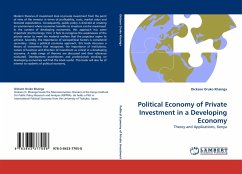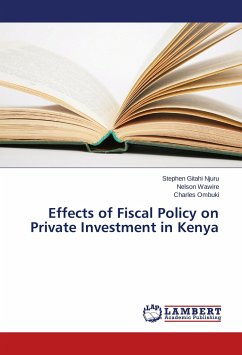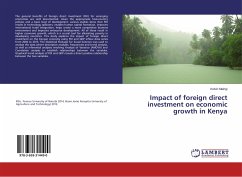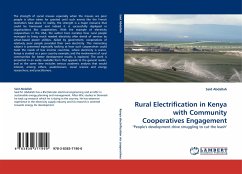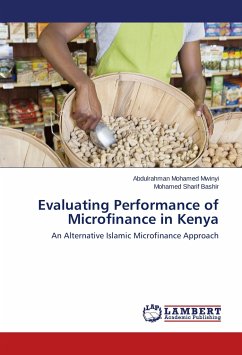Modern theories of investment look at private investment from the point of view of the investor in terms of profitability, costs, market value and demand expectations. Consequently, public policy is directed at creating an environment where economic benefits to investors can be maximised. In the context of developing economies, this approach has some important shortcomings. First, it fails to recognise the weaknesses of the private sector to meet the material welfare that the populace aspire to achieve. Secondly, the importance of sociopolitical factors is considered secondary. Using a political economy approach, this book discusses a theory of investment that recognises, the importance of institutions, nature of business and direction of investment as critical in a developing economy. A wide range of thoeries are discussed and their relavance evaluated. Development practitioners and professionals working on developing economies will find the book useful. This book will also be of interest to students of political economy.

